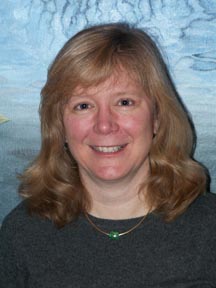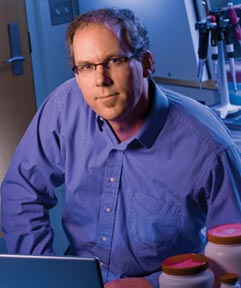 Frances Lund, Ph.D., an immunologist with a distinguished record of discoveries about cells that both defend against infection and help cause inflammatory disease, is set to become the new chair of the Department of Microbiology and the Charles H. McCauley Endowed Chair in Microbiology at the University of Alabama at Birmingham. Also joining the faculty will be her husband, research partner and fellow leading immunologist, Troy Randall, Ph.D., who will be the first Claude Bennett Scholar in the Department of Medicine’s Division of Clinical Immunology and Rheumatology.
Frances Lund, Ph.D., an immunologist with a distinguished record of discoveries about cells that both defend against infection and help cause inflammatory disease, is set to become the new chair of the Department of Microbiology and the Charles H. McCauley Endowed Chair in Microbiology at the University of Alabama at Birmingham. Also joining the faculty will be her husband, research partner and fellow leading immunologist, Troy Randall, Ph.D., who will be the first Claude Bennett Scholar in the Department of Medicine’s Division of Clinical Immunology and Rheumatology.
Lund and Randall will also be senior scientists in UAB’s Comprehensive Cancer Center and the Arthritis, Musculoskeletal and Autoimmunity Center.
“We are thrilled to have these two world-class scientists join us at UAB,” says Ray L. Watts, M.D., senior vice president for Medicine and dean of the UAB School of Medicine. “Both Dr. Lund and Dr. Randall have made significant contributions to their respective areas of research and they’re first-class educators. Their strengths will help propel UAB as a leader in basic science and translational research related to infectious diseases and immunology, putting us closer to better medical therapies for a host of complex diseases.”
The recruitment is part of AMC 21, the School of Medicine and UAB Health System strategic plan to make UAB the preferred academic medical center of the 21st Century. Lund and Randall are expected to join UAB in early Spring 2012.
The pair comes to UAB from the University of Rochester Medical Center in New York State, where both held appointments as Professors in the Division of Allergy/Immunology and Rheumatology, as well as in the Department of Microbiology and Immunology, since 2008. The two immunologists, who met as graduate students at Duke University, have a wide-ranging record of research into basic B-cell and T-cell biology, and into the roles played by these cells in fighting or contributing to conditions from infections to arthritis to asthma to diabetes.
“What is so exciting to us about coming to UAB is that the university is investing heavily in its Department of Microbiology at a time when many programs around the nation are shrinking,” said Lund. “We were also attracted to the tradition of collaborative science, because no one laboratory today can answer all the scientific questions surrounding a body of work, and a community approach is a must.”
Lund is known for work showing that B cells have a larger role in the immune system than once thought. While scientists have long recognized that B cells make antibodies that label bacteria or viruses for destruction by the immune system, Lund determined over years of work that the cells also make chemical signaling molecules called cytokines and began to piece together the pathways that control cytokine production.
At UAB, Lund’s work in host response to infection or other insults will dovetail with the institution’s long history of research in infectious diseases and autoimmune diseases such as systemic lupus and rheumatoid arthritis.
 Randall has a special interest in researching immune tolerance, the mechanism by which the immune system allows transplants – whether solid organ or bone marrow – to be successful. At UAB he will extend this research into cancer immunology, studying why the body does not effectively fight off cancerous cells as it does other foreign agents. Additionally, Randall is pioneering work on immune defenses located in the lung mucosa and the omentum, a membrane in the abdomen.
Randall has a special interest in researching immune tolerance, the mechanism by which the immune system allows transplants – whether solid organ or bone marrow – to be successful. At UAB he will extend this research into cancer immunology, studying why the body does not effectively fight off cancerous cells as it does other foreign agents. Additionally, Randall is pioneering work on immune defenses located in the lung mucosa and the omentum, a membrane in the abdomen.
“There are several natural fits between our work and research strengths at UAB, particularly within the centers that address autoimmune disease and cancer immunology,” Randall said. “We have a tumor immunology project underway in my laboratory surrounding ovarian cancer that will benefit tremendously from ongoing interactions with a leading cancer center like UAB’s.”